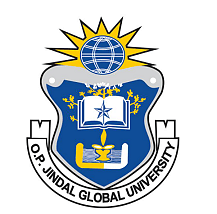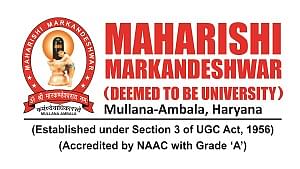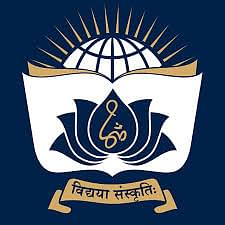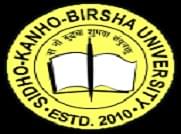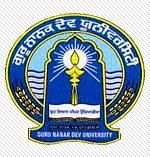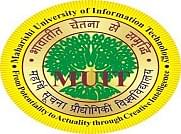Introduction
A Ph.D. in English is a prestigious
academic program designed for individuals passionate about literature,
linguistics, and cultural studies. It prepares scholars for careers in
academia, research, publishing, and other fields that value advanced critical
thinking and communication skills. This document outlines the typical admission
syllabus and eligibility criteria for a Ph.D. in English, providing a
comprehensive guide for prospective students.
Syllabus
for our course
:
Syllabus Ph.D. in English is as follows :
1. Research Methodology
Overview:
Research methodology is a cornerstone of the Ph.D. program, equipping students
with the tools to conduct scholarly research.
Key Topics:
Research design and planning
Qualitative and quantitative research methods
Literature review and bibliographic research
Data collection and analysis
Ethical considerations in research
Academic writing and publishing
Objective: To
develop the ability to design and conduct independent research projects,
analyze data critically, and present findings effectively.
2. Literary Theory and Criticism
Overview:
This course explores various theoretical frameworks used in the analysis and
interpretation of literary texts.
Key Topics:
Classical and modern literary theories
Structuralism and post-structuralism
Feminist, Marxist, and psychoanalytic criticism
Postcolonial and cultural studies
Eco-criticism and digital humanities
Objective: To
provide a deep understanding of different critical perspectives and their
application to literary analysis.
3. Special Topics in Literature
Overview:
Special topics courses allow students to delve into specific literary genres,
periods, or themes.
Key Topics:
Medieval and Renaissance literature
Romantic and Victorian literature
Modern and contemporary literature
American, British, and World literature
Genre studies (e.g., poetry, drama, fiction)
Objective: To
gain expertise in specific areas of literary study and contribute original
insights to the field.
4. Linguistics and Language Studies
Overview:
Linguistics courses examine the structure, development, and use of the English
language.
Key Topics:
Phonetics and phonology
Morphology and syntax
Semantics and pragmatics
Sociolinguistics and psycholinguistics
Historical linguistics and language change
Objective: To
understand the intricacies of language and its role in communication, culture,
and identity.
5. Pedagogy and Teaching of English
Overview:
This course focuses on the theories and practices of teaching English at
various educational levels.
Key Topics:
Curriculum development and instructional design
Teaching methodologies and strategies
Assessment and evaluation
Technology in language teaching
Classroom management and student engagement
Objective: To
prepare students for teaching roles in academia and other educational settings.
6. Dissertation
Overview: The
dissertation is the culminating project of the Ph.D. program, involving
original research on a chosen topic.
Key Components:
Proposal development
Literature review
Data collection and analysis
Writing and revision
Oral defense
Objective: To
produce a substantial and original contribution to the field of English
studies.
Eligibility
Criteria :
Eligibility Ph.D. in English Is as follows
Academic Qualifications
Master’s Degree:
Candidates must have a Master’s degree in English or a closely related field
from a recognized university. The degree should demonstrate a strong academic
record, typically with a minimum GPA requirement.
Previous Research Experience:
While not always mandatory, prior research experience, such as a Master’s
thesis, published papers, or conference presentations, is highly desirable.
Entrance Examinations
Written Test:
Many universities require candidates to pass a written entrance examination
that tests their knowledge of English literature, language, and research
methodology. The test may include objective and subjective questions.
Personal Interview:
Shortlisted candidates are often required to attend a personal interview. The
interview assesses the candidate's research interests, academic background, and
suitability for the Ph.D. program.
Language Proficiency
English Language Proficiency:
Non-native English speakers must demonstrate proficiency in English through
standardized tests such as TOEFL or IELTS, with minimum score requirements set
by the university.
Research Proposal
Statement of Purpose (SOP):
Candidates must submit a detailed SOP outlining their research interests,
objectives, and reasons for pursuing a Ph.D. in English. The SOP should reflect
the candidate’s academic background, research experience, and future goals.
Research Proposal:
A preliminary research proposal may be required, outlining the intended
research topic, objectives, methodology, and potential contributions to the
field.
Recommendations
Letters of Recommendation:
Candidates must provide letters of recommendation from academic or professional
references who can attest to their qualifications, research potential, and
suitability for the Ph.D. program.
Additional Requirements
CV/Resume: A
comprehensive CV or resume detailing the candidate’s academic background,
research experience, publications, teaching experience, and other relevant
achievements.
Application Form and Fees:
A completed application form, along with the required application fee, must be
submitted by the specified deadline.
Conclusion
Pursuing Ph.D. in English is a rigorous and rewarding
endeavor that requires a strong academic background, a passion for research,
and a commitment to contributing new knowledge to the field. The admission
process is competitive and comprehensive, designed to identify candidates with
the potential to excel in advanced literary and linguistic studies.
The syllabus of a Ph.D. program in English is diverse,
covering essential areas such as research methodology, literary theory,
linguistics, and pedagogy. This curriculum is designed to equip students with
the necessary skills to conduct independent research, critically analyze texts,
and teach effectively.
Eligibility criteria Ph.D. in English are stringent,
ensuring that only the most qualified and dedicated candidates are admitted.
Academic qualifications, entrance examinations, language proficiency, research
proposals, and recommendations all play a crucial role in the selection
process.
In conclusion, a Ph.D. in English offers an opportunity for
intellectual growth, academic achievement, and professional development. It
prepares scholars for a range of careers, including academia, research,
publishing, and more. By meeting the rigorous eligibility criteria and
successfully navigating the comprehensive syllabus, candidates can achieve
their goals and make significant contributions to the field of English studies.





